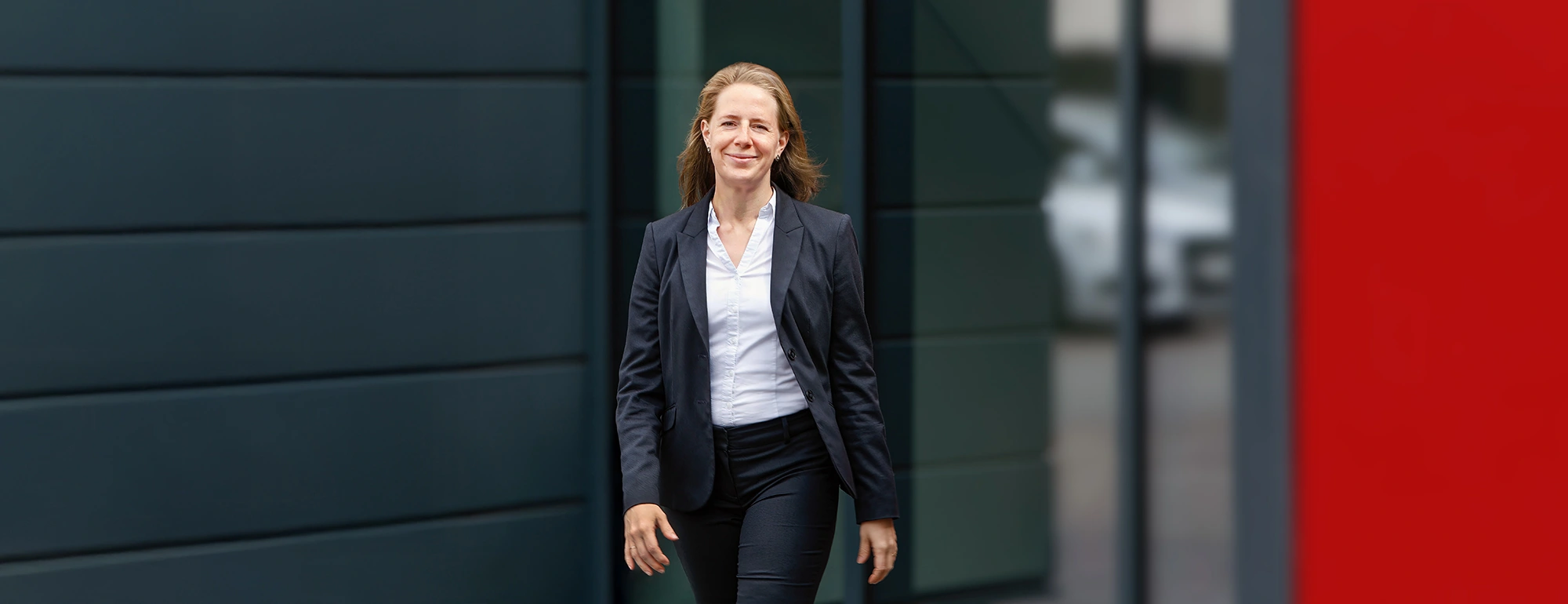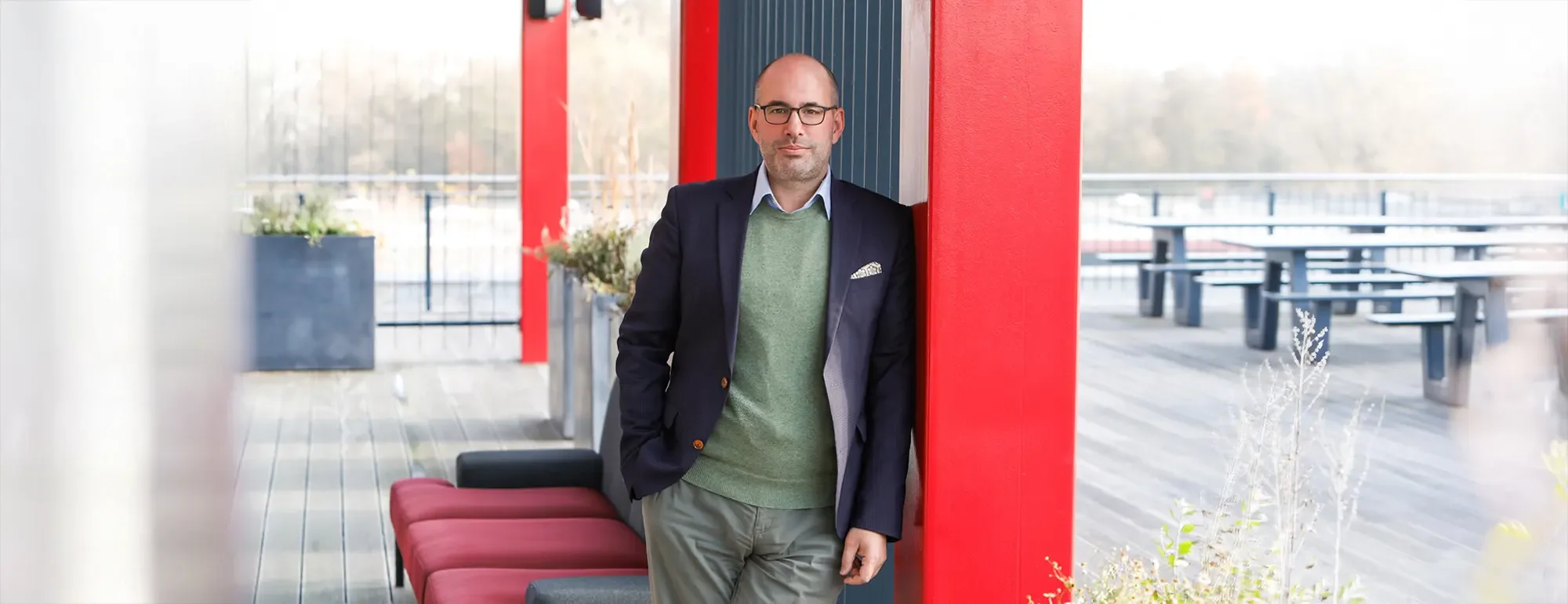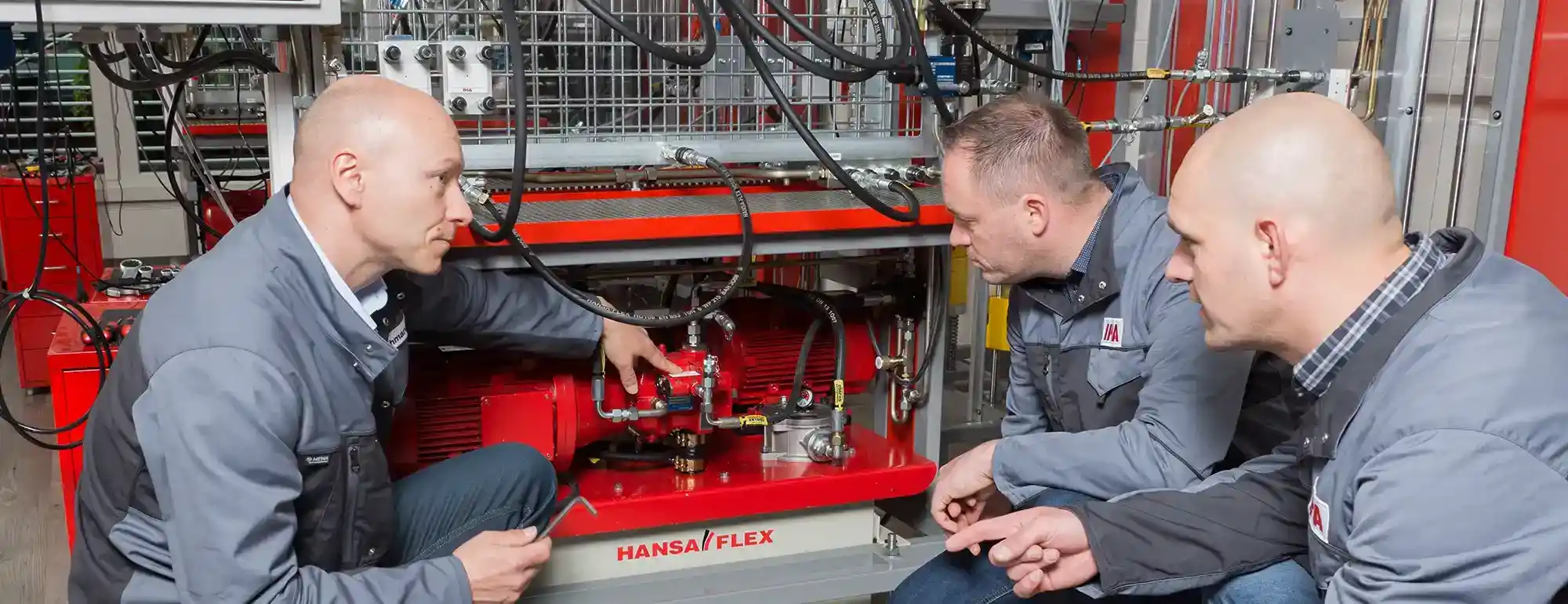Lena Kuhlmann, who holds a PhD in materials science, has led Central Purchasing at HANSA‑FLEX in Bremen since 2023. In the interview, she explains what modern purchasing is all about, why she consciously chose to join HANSA‑FLEX and how she juggles family and management responsibilities.
How did you, an engineer with a PhD, end up in purchasing?
During my time in the automotive industry as a project manager, I was heavily involved in the procurement of machines and equipment. There I quickly noticed how interesting and strategically important purchasing is. Since my partner had found a job in Bremen, it was clear to me: now is the time for a new start. HANSA‑FLEX was the perfect match for me – a company with an engineering culture, a family atmosphere and a high level of creativity.
What does purchasing actually involve?
Many people think that purchasing is only about prices. Of course, that is part of what we do, but it represents only one aspect of our diverse field of work. On the one hand, we have operational purchasing. This is concerned with day-to-day business, handling purchase orders and communicating with our many suppliers to ensure article availability. This task should not be underestimated; we continuously stock over 100,000 different articles in our two central warehouses in Germany. On the other hand, we also have strategic purchasing. Here the focus is on the long-term optimisation of our procurement processes. We analyse procurement markets, seek out and qualify new and existing suppliers and negotiate long-term framework agreements. Both teams interact and coordinate their work. This close cooperation is the key to success.
What role does digitalisation play in this?
The continuous optimisation and automation of recurring routine tasks allows us more time for strategic activities. Right now, our largest project involves the electronic interchange of order data between us and our suppliers. Unsurprisingly, our suppliers are greatly interested in this. Digitalisation not only saves time, it also reduces errors.
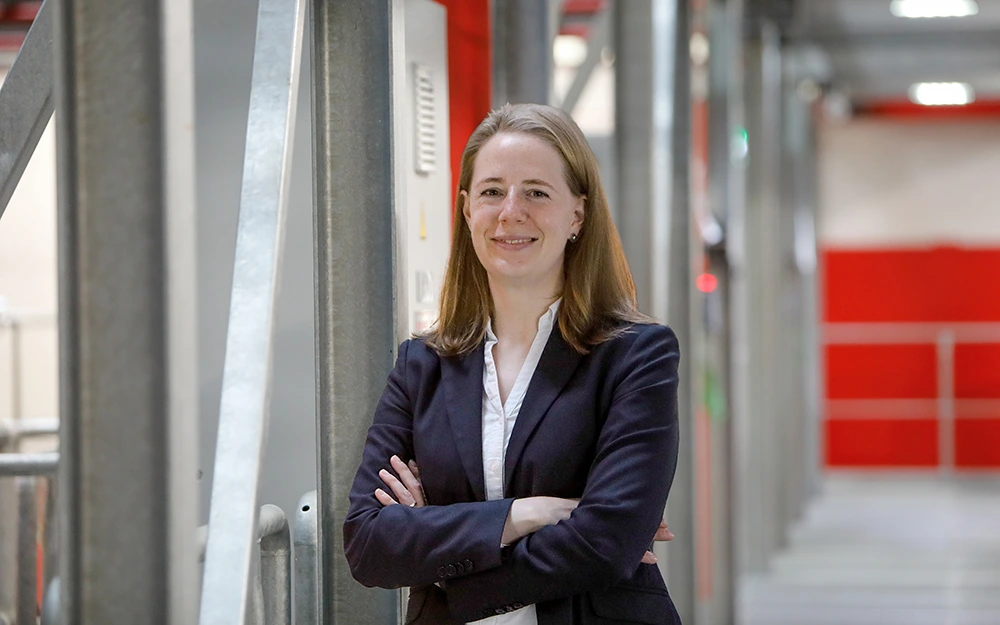
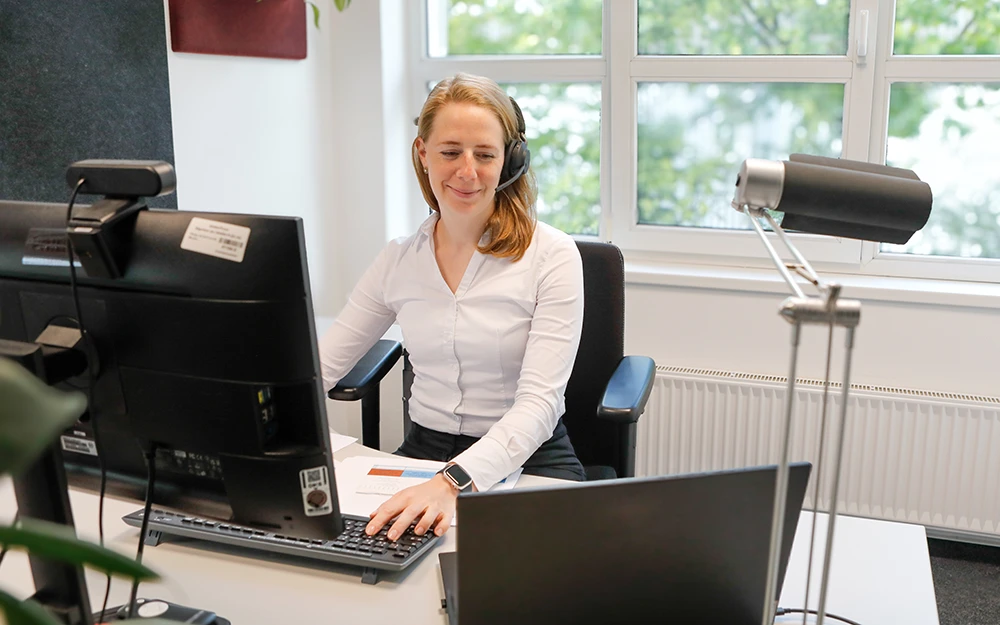
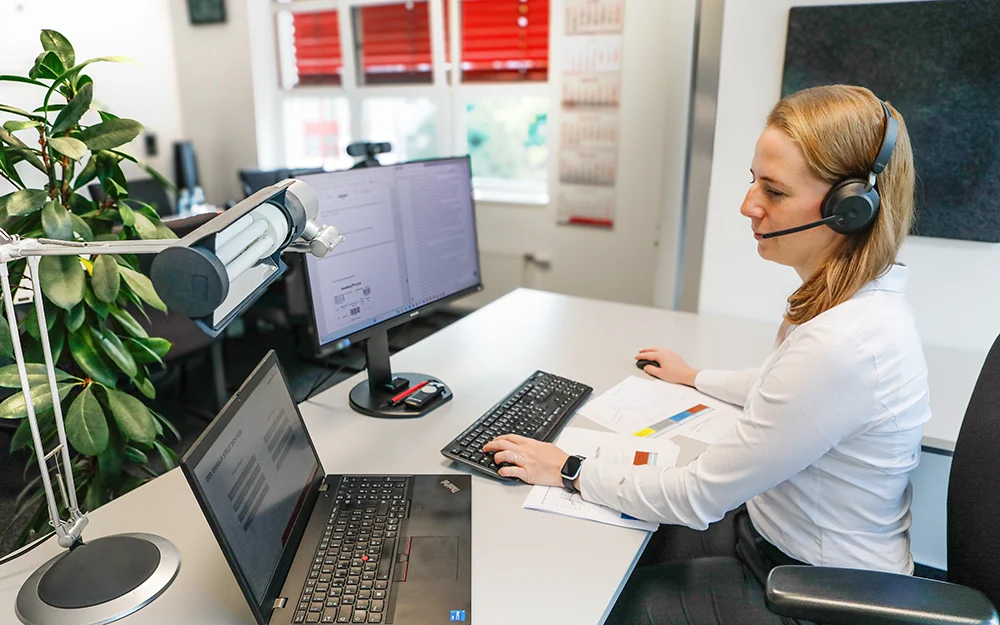
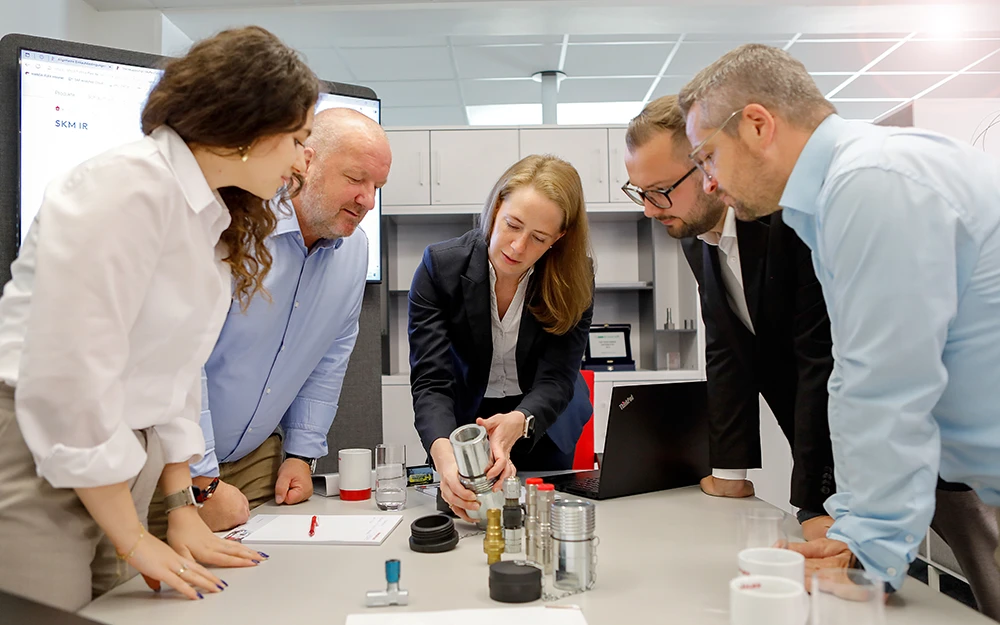
![[Translate to Englisch:] [Translate to Englisch:]](/fileadmin/_processed_/a/8/csm_036_Mitarbeiterportrait_LK_2025_08_JA_199b63238b.png)
What articles do you and your team procure?
In Bremen, we are responsible mainly for the procurement of trading goods for stocking our two central warehouses in Germany. Trading goods include not only fittings and hose material but also products such as pneumatic components, which are outside HANSA‑FLEX’s core business but are selling in increasing quantities. We also procure indirect goods, which are products that we use ourselves. The range extends from machines and IT hardware to office chairs and even all the energy bought for HF Germany. You can see that life in purchasing is never boring.
How has purchasing changed in recent years?
Today’s focus is firmly on strategic purchasing, which is why we recruited additional staff in this field last year. As a career changer, I can also be expected to bring new ways of looking at purchasing into the organisation. Whether it be trade tariffs, the Covid pandemic or the war in Ukraine: global trading conditions and supply chains are becoming increasingly unstable, which is why we continually check and strengthen our purchasing strategies. We gradually reduce dependencies and bolster our resilience.
How do you reduce risks in purchasing?
Let’s take hose lines and pipelines as a case in point. They are indispensable for our core business. A couple of years ago, HANSA‑FLEX decided to establish its own fittings production centre in India. This enables us to secure the availability of critical components, so that our customers can rely on us at all times, even when supply chains are stretched. Introducing multiple sourcing as widely as possible and having both local and global suppliers contribute to the reduction of risks in our procurement.
What role does sustainability play in purchasing?
As a family company, HANSA‑FLEX embraces its corporate social responsibilities particularly in this field and has the aim of becoming climate neutral by 2040. There are also legal requirements, such as the EU Corporate Sustainability Reporting Directive (CSRD) and the German Supply Chain Act (LkSG). Both have an increasing influence on our purchasing strategy. This may show itself in the procurement of green electricity, the assessment of transport routes and their efficiency or in future procurement of machines that at first glance may appear expensive but consume less energy over their service lives and therefore save costs and CO₂ emissions.
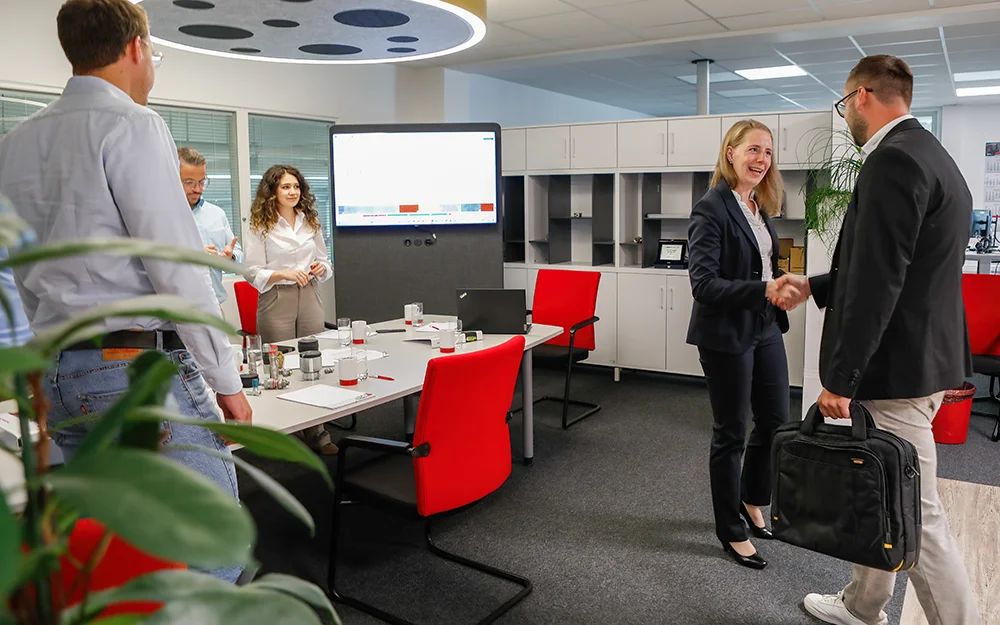
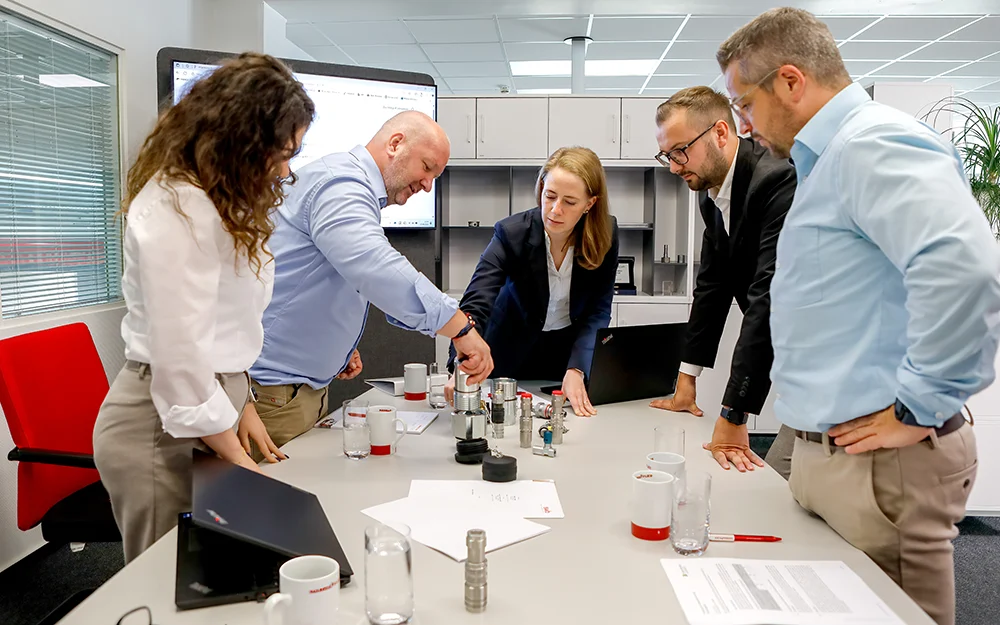
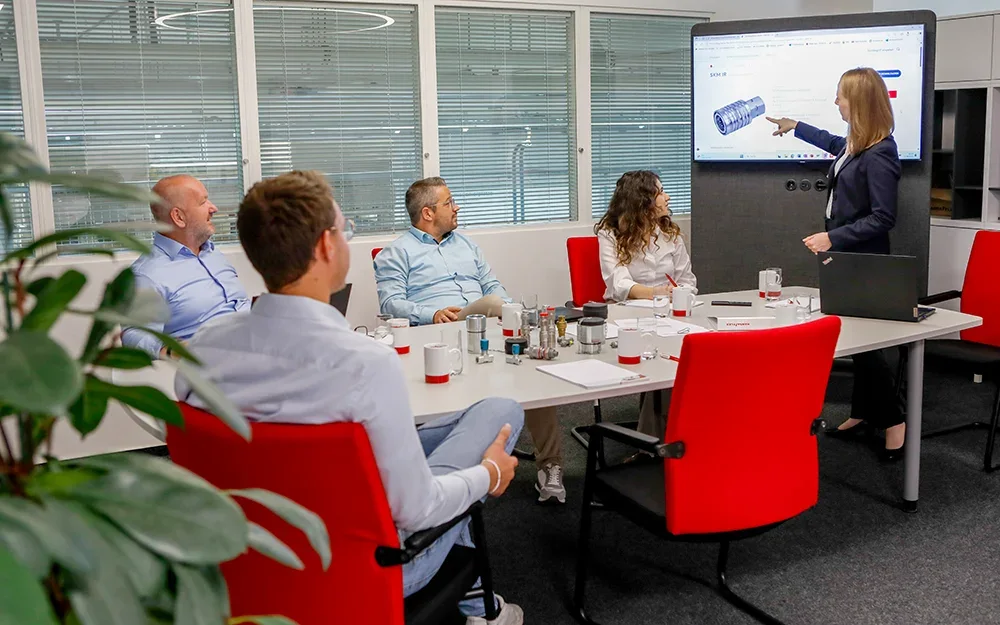
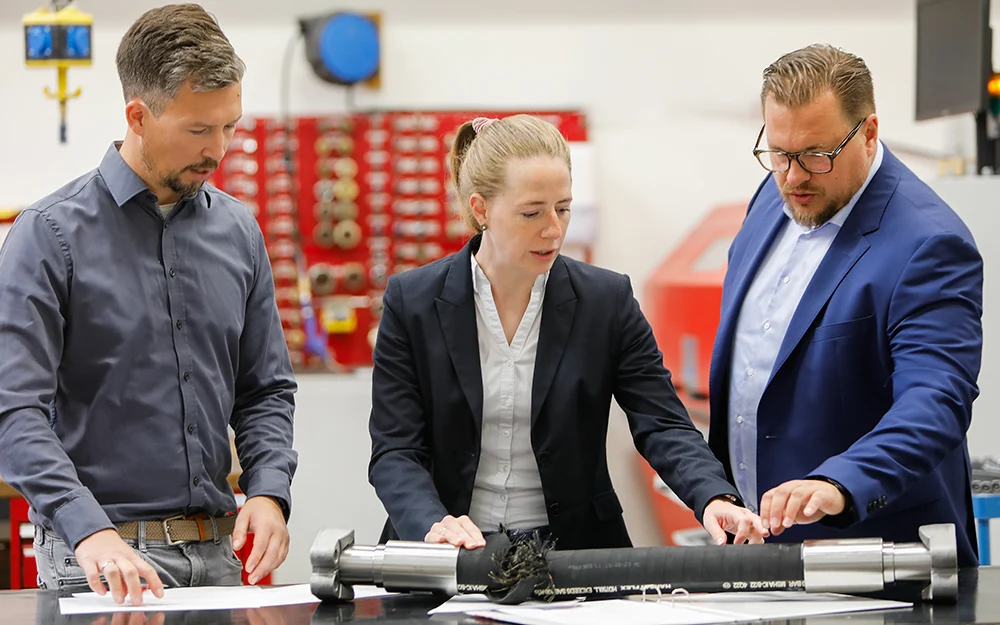
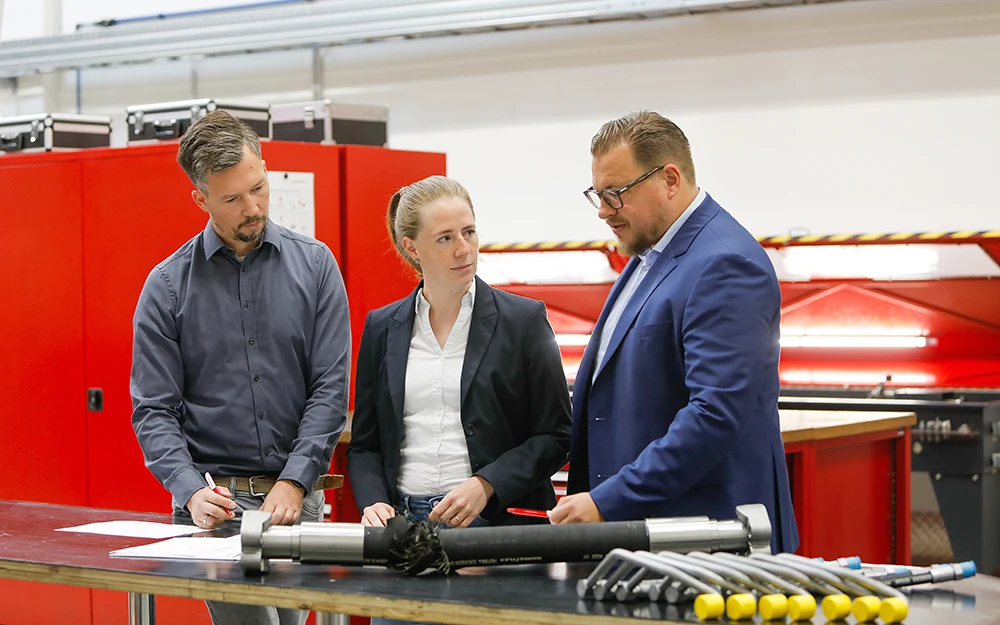
You manage your department part-time. How well does that work?
Very well. I am grateful to HANSA‑FLEX for allowing me this flexibility. You see – I love my job but I also love my family. Being able to do both at once cannot be taken for granted. For me, the ability to combine family and career was an important criterion in choosing an employer. In addition: I can fully and completely leave it all to my two team leaders and my staff at any time.
Do you sometimes encounter headwinds as a female manager?
Earlier yes, but today no. In the steel industry, when I was often the only woman in a male-dominated environment, it was sometimes challenging but it taught me a lot. At HANSA‑FLEX, it is different: the spirit of togetherness is very supportive, and many female colleagues are in responsible positions. I have never felt I had to prove myself. Perhaps this is because I have never wanted to be reduced to my gender. I am an engineer. Full stop!
Do you see yourself working in other fields of business?
The importance of purchasing is underestimated time and time again. We contribute directly to wealth creation and the success of the company. On the one hand, our customers gain in uncertain times from a continuous delivery capacity, a high product quality, attractive terms and short procurement times. Customer options such as overnight dispatch of orders would not be possible without a smoothly operating purchasing department. Therefore, I make it my business to tell others outside purchasing about our work and interact with suppliers, customers and other departments to become even better.
Finally: What most motivates you in your job?
Without doubt, being given the opportunity to help shape the company. Things are on the move in purchasing and I am happy to be part of this change along with my team . We have achieved much, but there is also much left to do. I am convinced that modern strategic purchasing is a genuine factor in the success of HANSA‑FLEX and represents true added value for our customers.

 Mexico
Mexico
